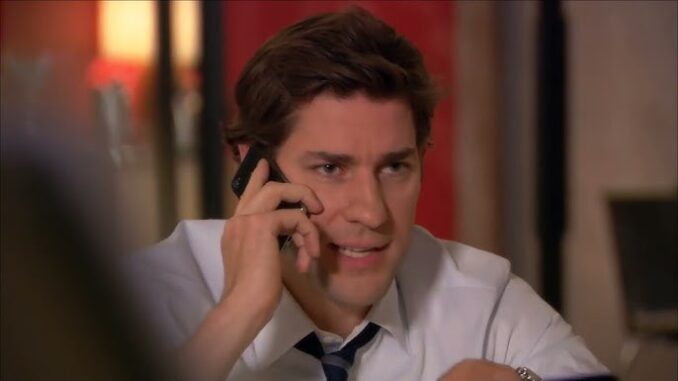
The magic of The Office lay in its ability to be simultaneously ludicrous and profoundly real. For nine seasons, Dunder Mifflin Scranton served as a petri dish for awkward humor, cringe-worthy encounters, and the slow, surprising blossoming of genuine affection. We braced ourselves for the gags, the fourth-wall breaks, and the endless parade of Michael Scott’s ill-advised schemes. We expected to laugh until our sides ached, and occasionally, to feel a warm, fuzzy glow of recognition for the mundane beauty of office life. What we didn't expect, however, was for a quiet, almost whispered moment to leave a hollow ache in our chests long after the credits rolled.
The scene in question is not Michael Scott’s grand farewell party, nor his tearful goodbyes to each member of his "family." It’s not Jim’s poignant montage for Pam at their wedding, or the quiet affirmation of his love for her after the art show. These moments were designed for emotional impact; they were supposed to move us. The scene that unexpectedly twisted the knife was the one we almost missed: Pam running after Michael at the airport, just before he boards his plane to Colorado, in "Goodbye, Michael."
The build-up to Michael’s departure had been fraught with the usual Michael Scott chaos. He’d planned a meticulously awkward farewell tour, each goodbye a miniature, often misjudged, performance. There were the Dundies, the gifts, the sentimental-but-still-cringey speeches. Our emotional sensors were primed for a big, tearful crescendo, probably involving a grand, embarrassing gesture that somehow, despite himself, became genuinely moving. We’d seen him hug Dwight, advise Andy, and share a final, knowing glance with Jim. The emotional arc felt complete, albeit predictably idiosyncratic.
Then, Pam. She’d spent the day at a sales meeting, missing most of Michael’s goodbyes, a cruel narrative irony given her unique bond with him. She was, arguably, the only one who consistently saw the vulnerable, lonely man beneath the bluster, the one who genuinely loved and was loved by her in return. Her frantic rush to the airport, a desperate scramble against the clock, felt like a last-ditch effort to prevent an un-Mic’d, unfilmed moment from being lost to the ether.
And then, it happened. The camera, faithful chronicler of Dunder Mifflin’s absurdities, finally caught up to Pam as she found Michael at the gate. But just before she reached him, Michael performed a quiet, almost imperceptible act of rebellion against the very premise of the show: he unclipped his microphone. The small, unceremonious click of plastic against fabric was barely audible, yet it resonated like a thunderclap. In that instant, the fictional wall between character and audience, between performance and truth, crumbled. Whatever was said between Pam and Michael in those final, precious seconds would never be heard by us, the voyeurs. It was theirs alone.
This wasn't a scene designed for grand gestures or dramatic pronouncements. It was a silent, whispered conversation, carried on the airport's fluorescent hum, beneath the indifferent gaze of other travelers. We saw Pam embrace him, her head tucked into his shoulder, a moment of profound tenderness that transcended the comedic framework. We saw Michael’s face, not one of the usual exaggerated expressions, but soft, almost serene. And then, he turned, walked away, and boarded the plane.
The hurt came not from the parting itself – we knew Michael was leaving, and frankly, it was time for his character to find new horizons. The hurt came from the privacy of it, the unexpected intimacy that was suddenly denied to us. For nine years, we had been privy to every awkward silence, every whispered confession, every private joke. We were part of the Dunder Mifflin family, allowed into the most vulnerable moments. But this was different. This was a moment so sacred, so profoundly real, that the show itself acknowledged its sanctity by literally pulling back the curtain.
It hurt because it was a powerful reminder that some goodbyes are not meant for an audience. They are quiet, personal affairs, whispered truths exchanged between two souls who understand each other in ways no one else can. It hurt because it mirrored the goodbyes in our own lives that are unrecorded, uncelebrated, but echo loudest in our hearts. Michael Scott, the man who craved an audience more than anyone, chose, in his final moments, to have one authentic, unscripted, unmic’d conversation with the person who truly got him. And in doing so, The Office didn't just break the fourth wall; it dissolved it, forcing us to acknowledge the raw, unfiltered emotion that had always pulsed beneath the layers of parody and pratfalls. It was a punch to the gut, precisely because it was so quiet, so unassuming, and so utterly, beautifully human.